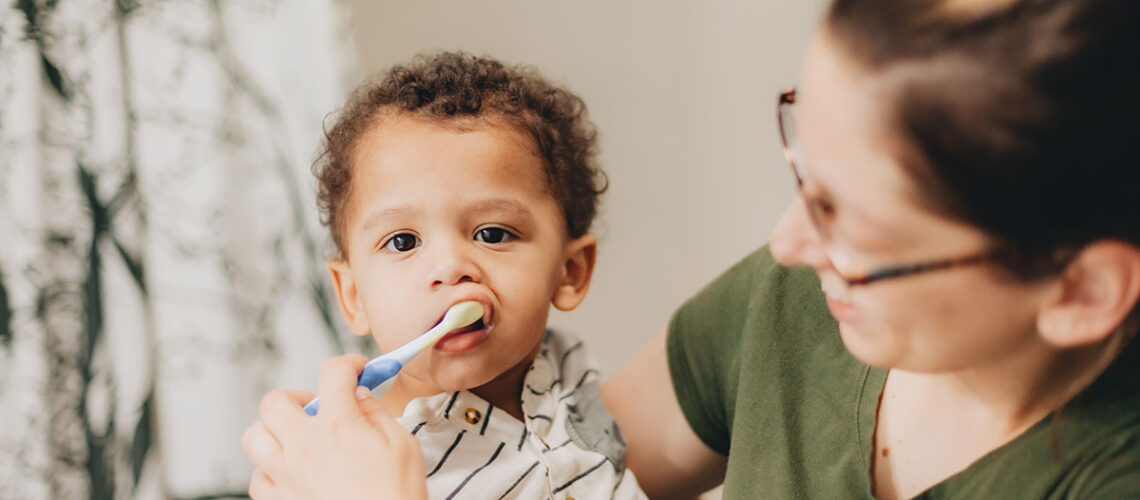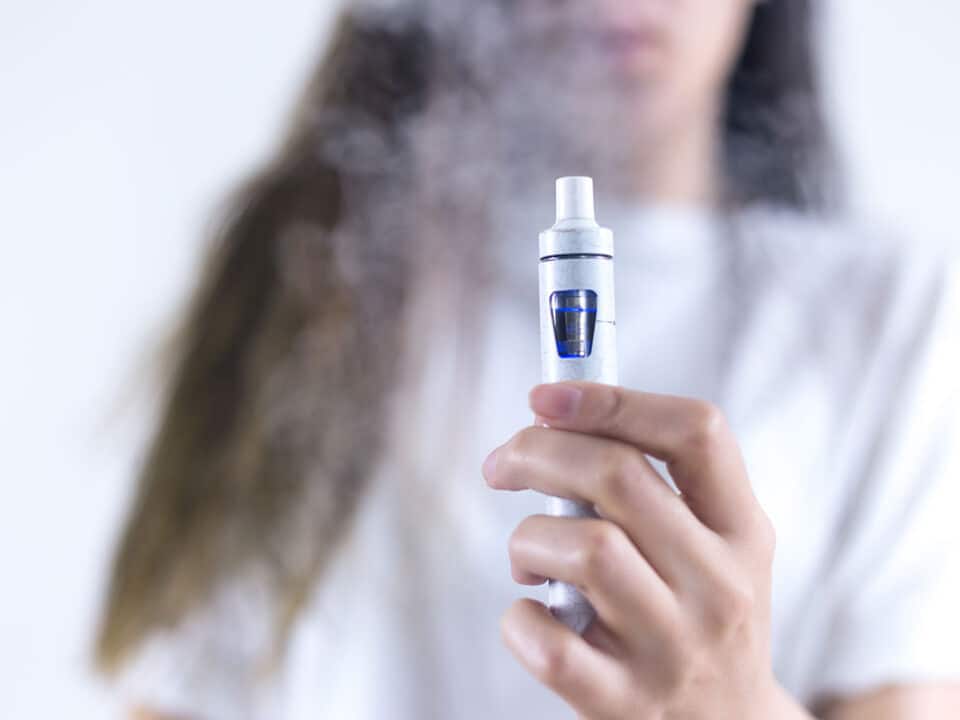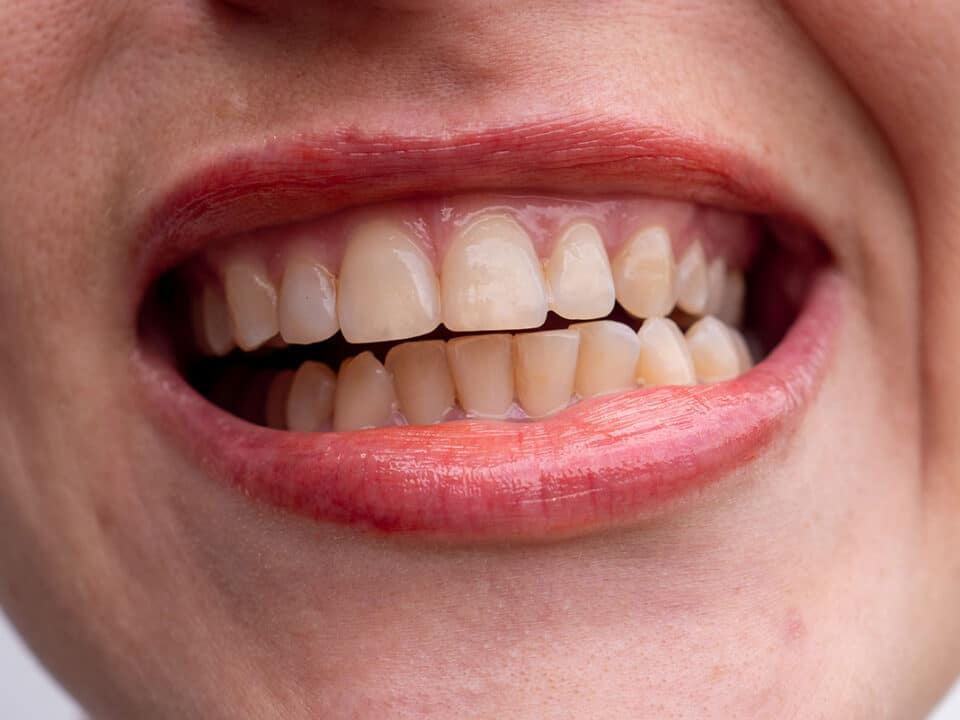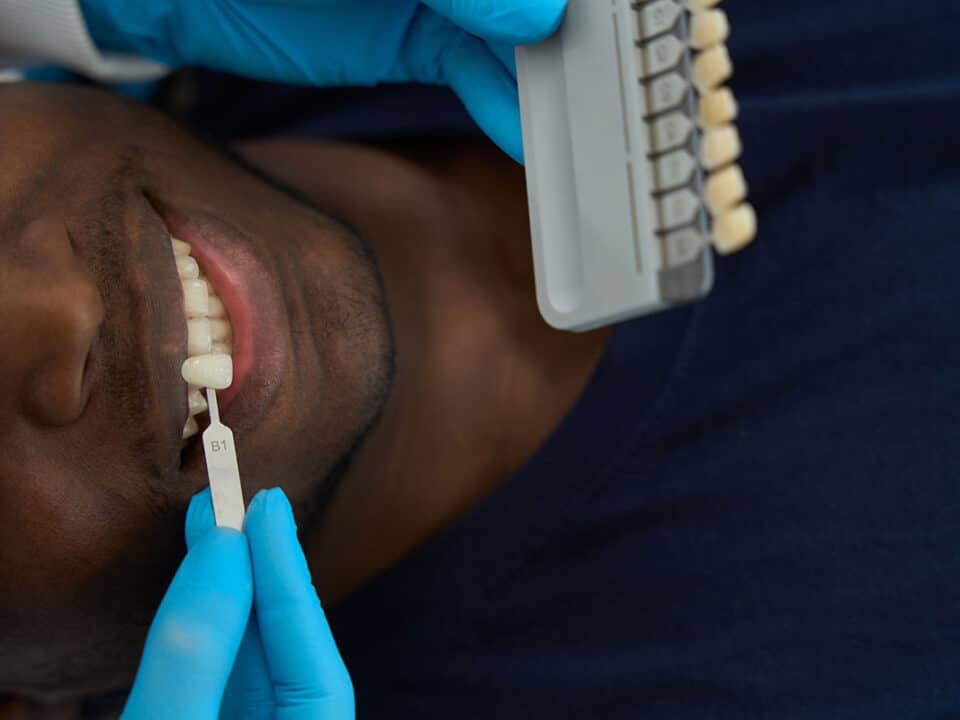As parents, we all want to instill good habits in our children, and one of the most important is proper dental hygiene. However, getting kids excited about brushing their teeth can sometimes be an uphill battle. The struggle to keep them engaged, cooperative, and consistent with brushing can be frustrating, especially when they view it as a chore rather than an essential part of their daily routine. Many parents face resistance, whether it’s complaints about the taste of toothpaste, boredom, or simply a lack of understanding about why brushing is so crucial. Even with all the tools at their disposal, we get a lot of questions from parents wondering how to motivate a toddler to brush their teeth.
Fortunately, with the right approach, you can transform brushing from a dreaded task into a fun and routine activity your child looks forward to each day. Using creative strategies, positive reinforcement, and establishing early habits can make brushing an enjoyable and rewarding experience. Patience, consistency, and engagement will help ensure your child develops excellent oral hygiene habits that will last a lifetime.
Table of Contents
When to Start Brushing
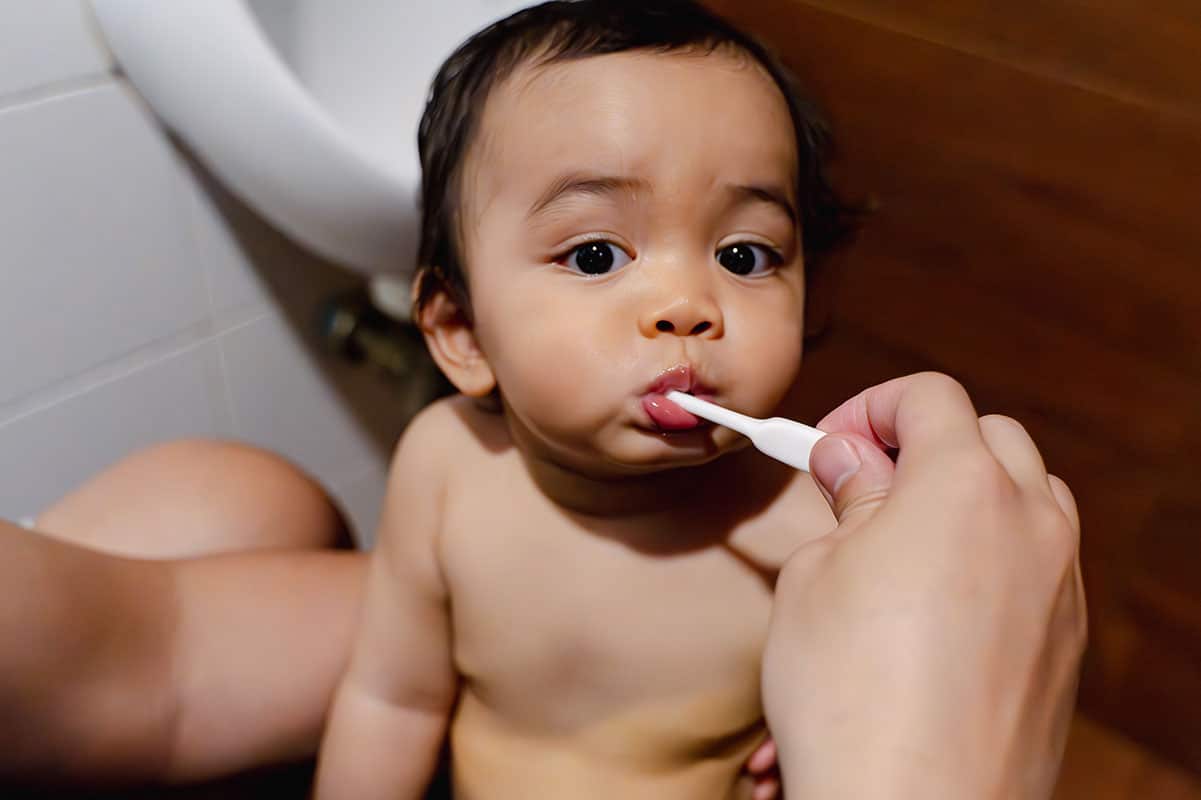
The journey to healthy teeth starts early! You can begin caring for your baby’s oral health before the first tooth appears. Wipe your baby’s gums with a soft, damp cloth after feedings to help remove bacteria and get them accustomed to oral care.
Once the first tooth emerges (usually around six months), switch to using a soft-bristled baby toothbrush with a tiny smear of fluoride toothpaste. It’s more about establishing the habit at this stage than thorough cleaning. As more teeth appear, increase the amount of toothpaste to a rice-grain size and gently brush in small circles.
Most children are ready to start learning how to brush their teeth with assistance by age two. Let them try brushing independently while you supervise and finish the job to ensure all teeth are properly cleaned. By age three, they can start using a pea-sized amount of toothpaste, but you should continue monitoring their technique and making sure they spit out excess toothpaste rather than swallowing it.
Children generally develop the dexterity to brush effectively around age seven or eight. Until then, hands-on guidance and encouragement are crucial in forming a lifelong habit of proper dental hygiene.
How to Brush a Toddlers Teeth Properly
Teaching your child the correct way to brush ensures they develop strong, healthy teeth. Here’s a step-by-step guide to proper brushing technique:
- Use the Right Tools – Choosing the right toothbrush and toothpaste is essential. A soft-bristled toothbrush with a small head is ideal for little mouths. Toothbrushes with their favourite characters or bright colours can make brushing more appealing. Fluoride toothpaste is recommended as it helps prevent cavities, but make sure to use age-appropriate amounts.
- The Two-Minute Rule – Brushing should last for two full minutes, twice a day. You can use a timer, a fun song, or a brushing app to help your child understand the duration needed for effective cleaning.
- Circular Motion Technique – Teach your child to brush in small, circular motions rather than scrubbing back and forth. This technique helps clean the teeth effectively while being gentle on the gums.
- Don’t Forget the Tongue and Gums – Bacteria can build up on the tongue and gums, leading to bad breath and plaque formation. Encourage your child to gently brush their tongue and gums as part of their routine.
- Supervise and Assist – Until your child develops the dexterity to brush effectively (usually around age seven or eight), be involved in their brushing routine. You can let them brush first, then go over their teeth yourself to ensure a thorough clean.
Tools and Products to Help Brush Your Child’s Teeth
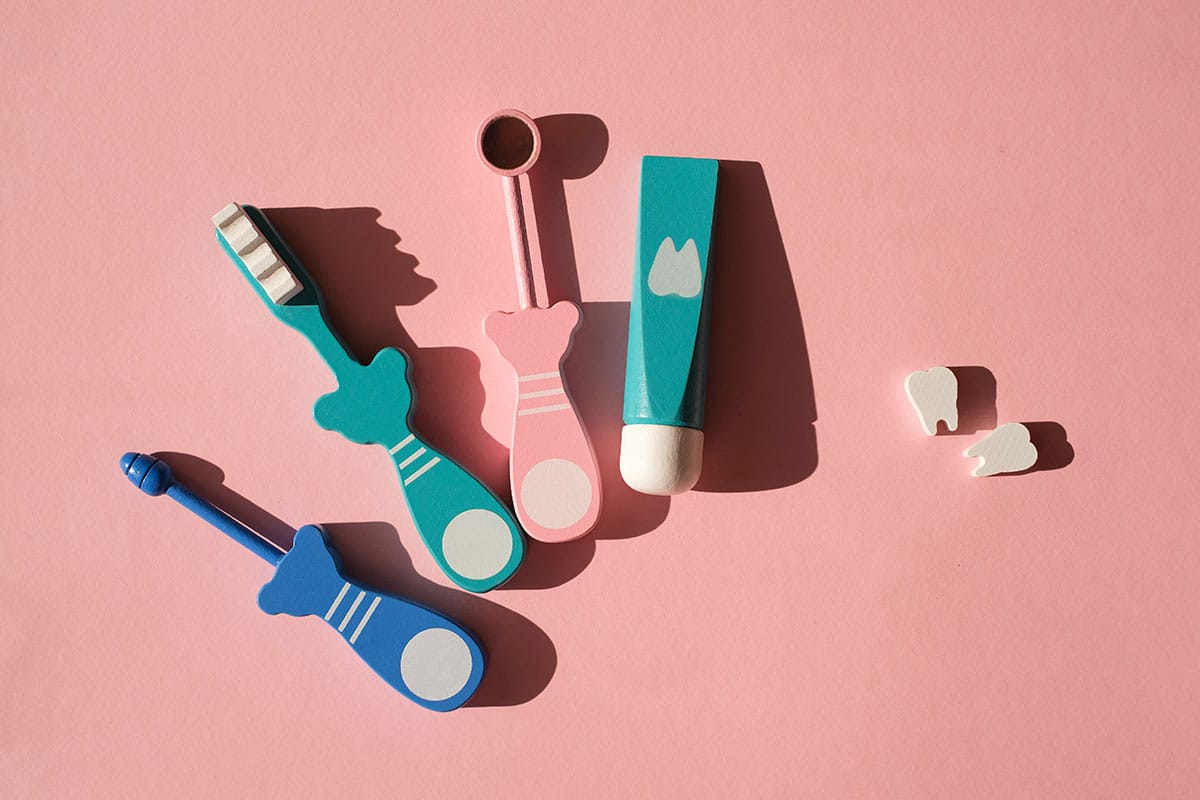
The right tools can make brushing easier and more engaging for your child. Here are some products that can assist:
- Electric Toothbrushes – Many kids find electric toothbrushes more fun to use, and they can clean teeth more effectively.
- Flavored Toothpaste – Some children dislike the taste of regular toothpaste. Try child-friendly flavours like bubblegum or strawberry.
- Brushing Apps & Timers – Apps with interactive characters or timers with music can make brushing more engaging.
- Mouthwash for Kids – Alcohol-free, child-safe mouthwash can add an extra layer of protection and freshen breath.
- Floss Picks or Water Flossers – Easier to handle than traditional floss, these tools can help maintain good oral hygiene.
Why Brushing is Important Even For Toddlers
Children may not always understand why brushing is necessary, so explaining its benefits in a way they can relate to is important. Here are the key reasons why brushing is essential:
- Prevents Cavities – Plaque, a sticky film of bacteria, forms on teeth and produces acids that can cause cavities. Regular brushing removes plaque and prevents tooth decay.
- Keeps Breath Fresh – Brushing removes food particles and bacteria that cause bad breath, ensuring a clean and fresh mouth.
- Healthy Teeth for a Bright Smile – Strong, healthy teeth are important for chewing, speaking, and maintaining confidence in their smile.
- Prevents Gum Disease – Poor brushing habits can lead to gum inflammation (gingivitis), which can cause bleeding, swelling, and discomfort.
- Builds a Lifelong Habit – Teaching children proper brushing techniques early on sets the foundation for lifelong oral hygiene and prevents dental issues in adulthood.
Tips and Tricks to Motivate Your Toddler To Get Brushing
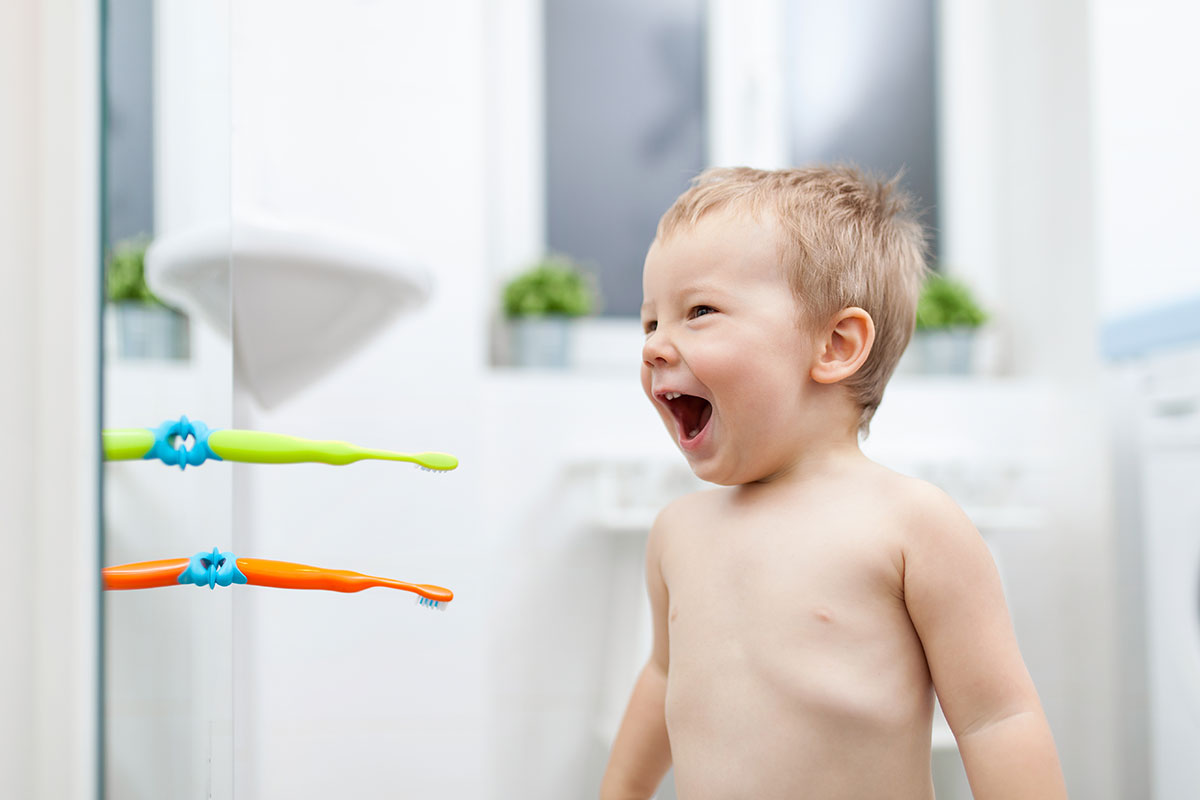
If your child resists brushing, try these creative strategies to make it more enjoyable:
- Let Them Pick Their Toothbrush and Toothpaste – Allowing your child to choose their own toothbrush (featuring their favourite character or colour) and a fun-flavoured toothpaste can make them feel excited about brushing.
- Turn Brushing into a Game – Create a fun brushing challenge, use a toothbrushing app, or set up a reward system to make brushing feel like an adventure.
- Use a Reward System – Create a sticker chart or reward system where they earn points for brushing regularly, which can be redeemed for small prizes or privileges.
- Brush Together – Make brushing a family affair! Children love to imitate their parents, so brushing together can reinforce the habit in a fun and engaging way.
- Tell a Story – Invent a fun story in which their toothbrush is a superhero fighting off evil cavity monsters. This can help them see brushing as an exciting mission.
- Use Positive Reinforcement – Always praise their efforts rather than focusing on what they did wrong. Encouraging words go a long way in building good habits.
- Introduce Music or Videos – Playing a favourite song or watching a fun two-minute brushing video can make brushing more enjoyable and engaging.
- Make it a Routine – Consistency is key. Brushing at the exact times every morning and night helps solidify it as a non-negotiable daily habit.
The Psychology Behind Good Brushing Habits (For Adults As Well)
Humans, especially children, respond well to consistency, encouragement, and a sense of control. Establishing and reinforcing a routine with positive experiences helps children internalize brushing as a standard, expected part of their daily lives.
Allowing your child some level of control over their oral hygiene—whether it’s choosing their toothbrush or deciding whether to brush before or after storytime—can help them feel more empowered. Pairing brushing with fun activities (such as listening to music or using a sticker chart) can create positive associations with the habit.
How a Dentist Can Help Get Your Child On The Right Track
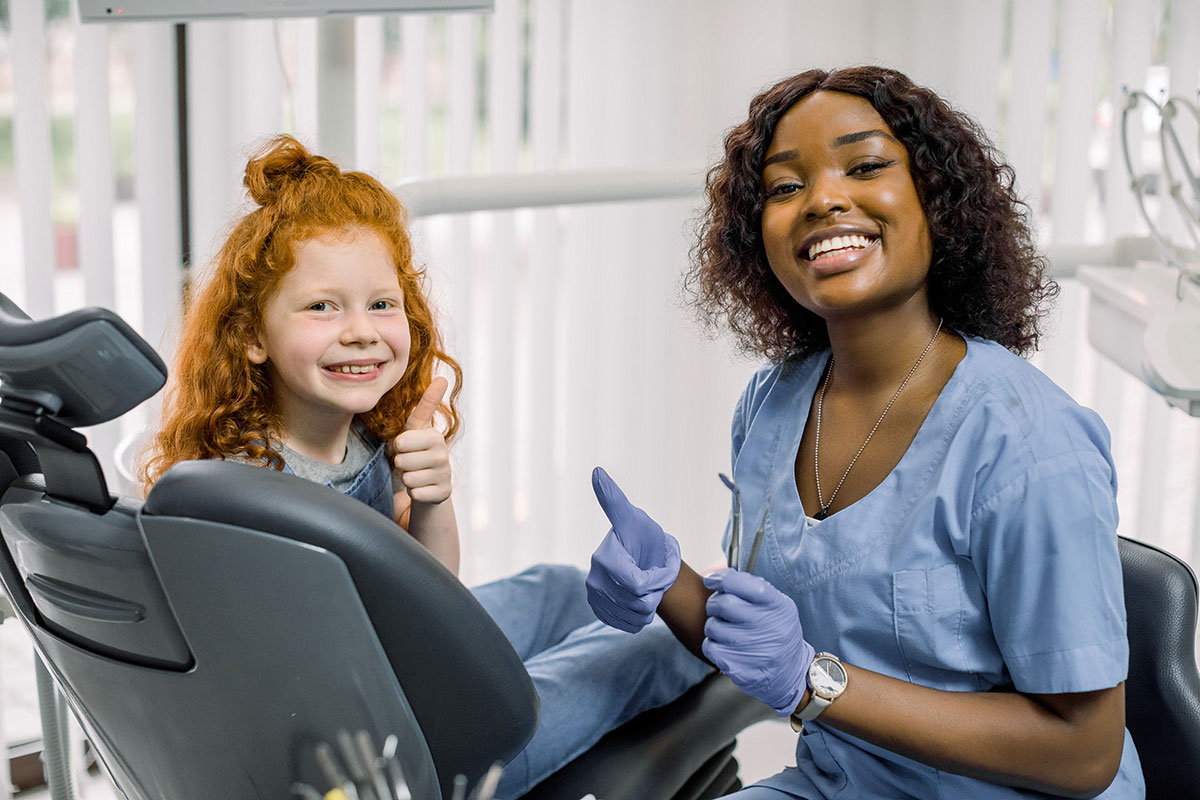
Regular dental visits (starting around age one) are crucial for maintaining healthy teeth. Pediatric dentists are skilled in making visits fun and stress-free. They can also:
- Reinforce the importance of brushing in a way kids understand.
- Provide professional cleaning to remove stubborn plaque.
- Offer personalized brushing tips based on your child’s specific needs.
- Apply fluoride treatments or sealants for extra protection against cavities.
- Identify and address dental issues early to prevent more significant problems down the road.
Why and When to Take Your Child to Their First Dentist Visit
Taking your child to the dentist early in life ensures proper oral development and prevents dental issues.
Why the First Visit is Important
- Prevention of Early Cavities – Early visits help detect and prevent cavities before they become serious problems.
- Establishing Good Dental Habits – Regular checkups create a foundation for lifelong dental hygiene.
- Eases Fear of Dentists – Early exposure to dental visits helps children become comfortable and reduces anxiety in future appointments.
- Identifies Developmental Issues – Dentists can monitor the growth of teeth and spot potential orthodontic concerns.
- Parental Guidance – The dentist provides valuable advice on brushing techniques, fluoride use, and dietary recommendations for healthy teeth.
When to Take Your Child for Their First Checkup
The American Academy of Pediatric Dentistry recommends that children visit the dentist when their first tooth appears or by their first birthday. Even if no visible issues exist, early checkups ensure that any potential problems are caught and addressed in their early stages.
Here’s how to ensure a smooth first visit:
- Choose a Pediatric Dentist – Pediatric dentists specialize in treating children and often create a fun, welcoming environment.
- Talk About It Positively – Avoid using words like “pain” or “scary.” Instead, describe the dentist as a friendly helper who checks their teeth.
- Read Books or Watch Videos – Many children’s books and videos explain dental visits in a fun and engaging way.
- Role-Play at Home – Pretend to be the dentist and let your child take turns checking your teeth with a toothbrush.
- Bring a Comfort Item – A favourite stuffed animal or toy can provide reassurance during the visit.
- Schedule Wisely – Pick a time when your child is well-rested and not hungry to minimize fussiness.
- Reward and Praise – Give small rewards or positive reinforcement for good behaviour at the dentist’s office.
Final Thoughts
Teaching your child to brush their teeth doesn’t have to be a daily struggle. By making it fun, engaging, and a normal part of their routine, you can set them up for a lifetime of healthy smiles. Start early, be patient, and remember: a little creativity goes a long way in making brushing a positive experience!
Check us out on Facebook and Twitter for daily information about Oral Health from Martindale Dental, or visit our offices in Hamilton and St. Catharines.
Have more questions?
Please contact us for all inquiries or to book an appointment with one of our convenient clinic locations. We look forward to hearing from you.

